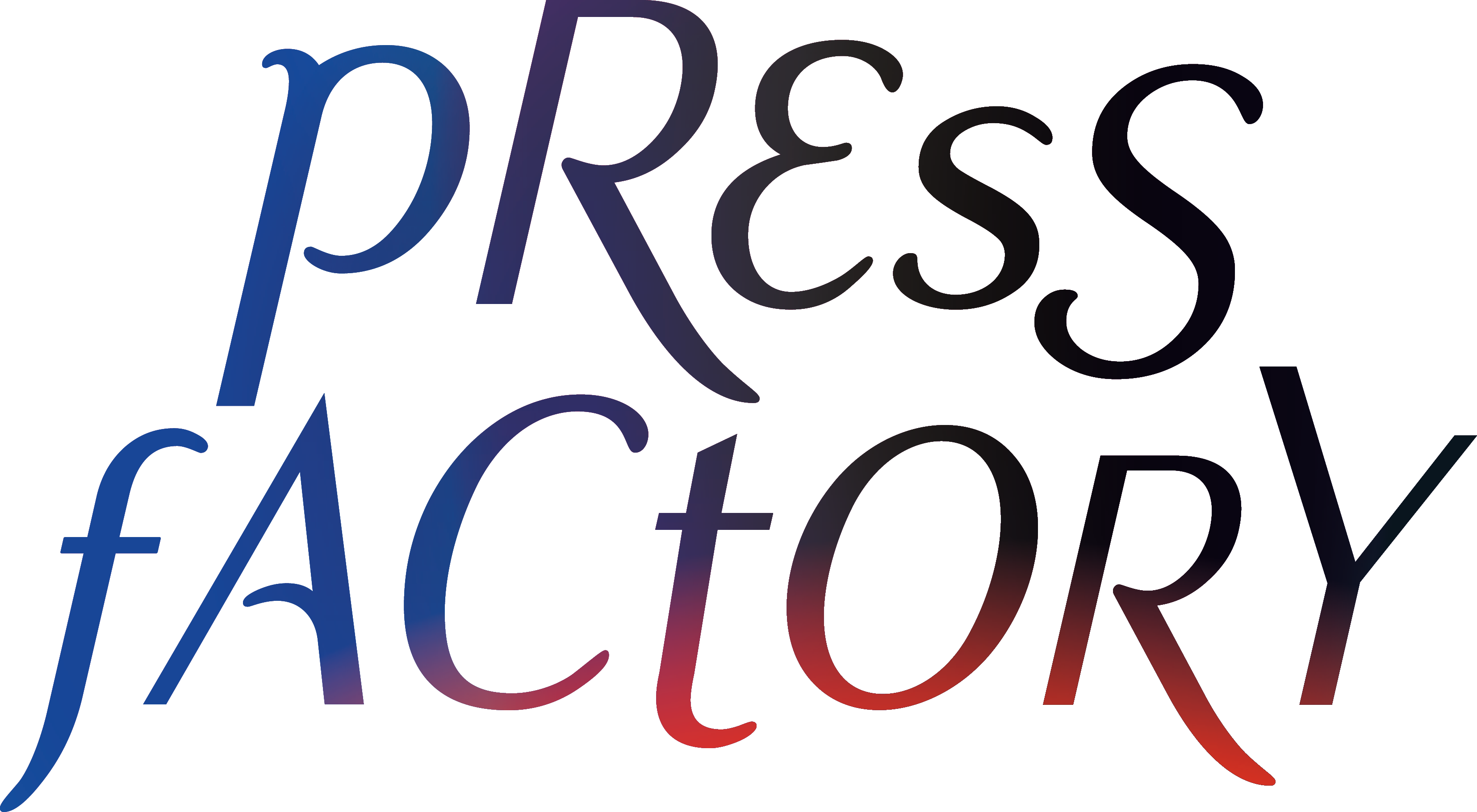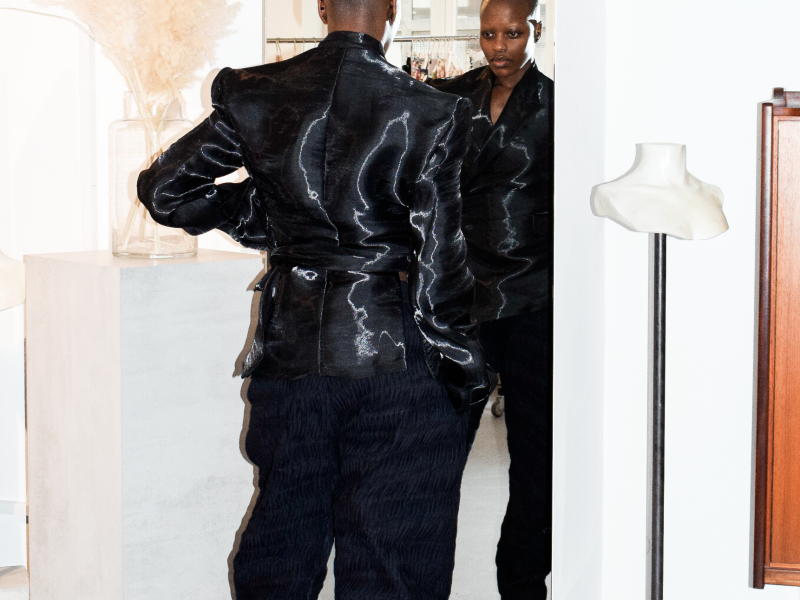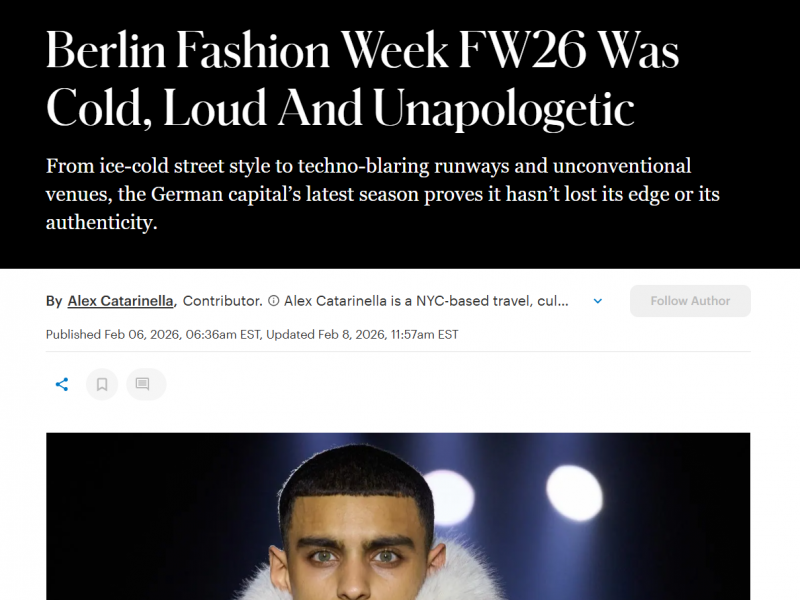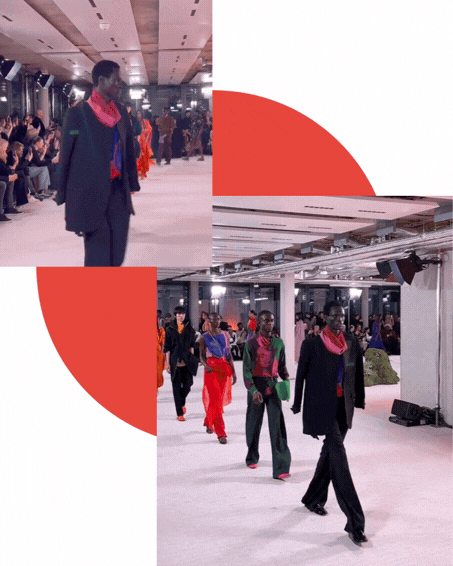
RETURN TO SENDER 11
BUZIGAHILL MOVES AUDIENCES WITH BERLIN FASHION WEEK SS26 DEBUT

With a moment of collective silence, BUZIGAHILL opened its first-ever Berlin Fashion Week runway show on Tuesday evening. Set in the impressive venue of FÜRST on Kurfürstendamm, the Ugandan label presented its eleventh collection, RETURN TO SENDER 11 (RTS11), as part of the official NEWEST show format — a powerful statement on textile colonialism, ownership, and reclaiming agency. The accompanying soundtrack began with spoken passages from the Universal Declaration of Human Rights in 17 languages, concluding with the sentence: “All human beings are born free and equal in dignity and rights.”
RETURN TO SENDER – RTS11
RTS11 continues BUZIGAHILL’s ongoing RETURN TO SENDER project — a resolute artistic and systemic critique of the global second-hand clothing market. Every piece starts as a second-hand garment sourced from Europe, North America, or Asia,arriving at Uganda’s Owino Market, the country’s largest second-hand market. In Kampala, the garments are cleaned, analyzed, and transformed into unique fashion statements that carry their origin, context, and attitude.
Credits: BUZIGAHILL, Ines Bahr; Bobby Kolade, Max Stürmer
The collection features deconstructed silhouettes, handcrafted patchworks, and innovative cuts that make provenance visible. Recurring elements like the tucked maxi dress—made from six different shirts and volumized with delicate pleats—define a new form of elegance. Denim, ever-present, is bleached, layered, or reinterpreted in fragmented waistbands as a bold statement. The fusion of streetwear elements like track pants with classic pieces creates a deliberately fractured aesthetic: chinos with elastic track-hem cuffs, jeans with sport-inspired waistbands.
Biodegradable materials such as the sculpted cassava bustier, created in collaboration with Lyndah Katusiime from cassava starch and gelatin, meet hand-knotted fringe chainlink dresses made from repurposed old T-shirts. Embroidered slogans like “TRY JESUS” and “BELIFVE,” inspired by Kampala’s taxi culture, are combined with traditional embroidery techniques from the Milaya Project in South Sudan — a collective of 46 South Sudanese women artisans in the Bidi Bidi refugee camp refining textiles with ancestral stitching.
Every piece receives a unique “passport” documenting its origin, material composition, production timeline, and ID number, inviting viewers to question and rethink consumption, ownership, and fashion.
A Collective Work
The collection was created through a collaborative, interdisciplinary process: stylist Ajatum Mercy co-designed the visual language, casting was curated by Regina Murtazina. The original soundtrack was composed by Masaka Masaka, generating a powerful atmosphere. The German parts of the soundtrack were recited by Christiane Arp and Norman Westphal. As the final words of the UN Declaration of Human Rights faded into the room, a moment of silence held sway — before minutes of applause filled the space.
Credit: BUZIGAHILL, by Ines Bahr (left to right: Florence Kasumba, Christiane Arp & Nikeata Thompson, Hadnet Tesfai & Romina Mann, Jerry Hoffmann)
Voices with Purpose
Among the guests were influential voices shaping not only fashion but societal narratives: actress Florence Kasumba, Fashion Council Germany Chairwoman Christiane Arp, host and cultural journalist Hadnet Tesfai, actor and director Lamin Leroy Gibba, choreographer and actor Nikeata Thompson, actor Jerry Hoffmann, and model Kozue Akimoto. Many were visibly moved — by the energy, the relevance of the content, and the conviction embodied by the show.
Textile Responsibility Needs New Stages
The show was part of the curated “NEWEST” format, produced by NOWADAYS and held at FÜRST on Kurfürstendamm. This venue reflects the tension between capitalist consumer history and cultural renegotiation. BUZIGAHILL was presented as part of the Berlin Contemporary category in the Berlin Fashion Week concept competition, which for the first time welcomed international labels this season. The competition is financed by the Senate Department for Economic Affairs, Energy and Public Enterprises as part of the Project Future state initiative (co-funded by the EFRE fund) and organised by Fashion Council Germany.
Credits: BUZIGAHILL, Bobby Kolade
About BUZIGAHILL
Bobby Kolade is the founder and Creative Director of BUZIGAHILL. Born in Sudan to Nigerian-German parents, he grew up in Kampala and Lagos. After working at Maison Margiela and Balenciaga in Paris and studying in Berlin and Kampala, here turned to Uganda in 2018 with the goal of establishing sustainable production chains and a critical fashion practice.
BUZIGAHILL and RETURN TO SENDER are a direct response to the impacts of global second-hand clothing exports on Uganda’s textile industry. RTS represents BUZIGAHILL’s active engagement in a global discourse on art, fashion, and politics by reversing waste flows through the creation of critical and desirable clothing. It is a collective refusal to remain at the end of the second-hand supply chain.









